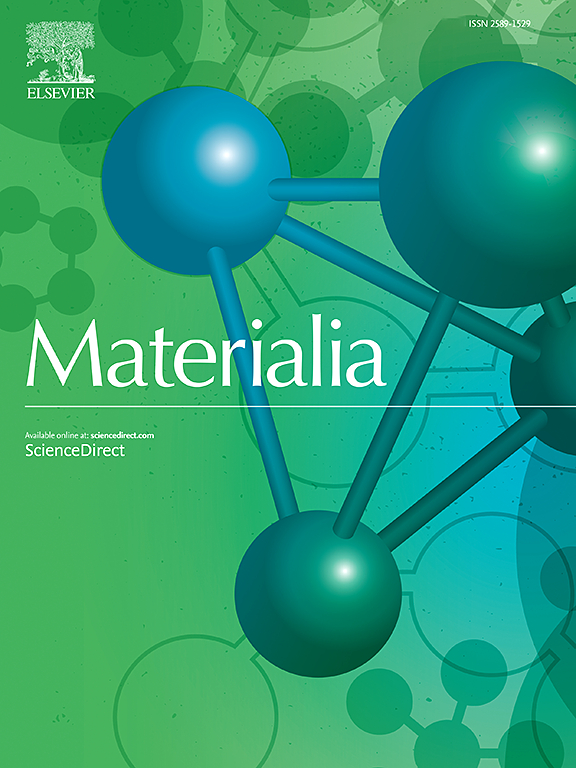Effects of plasma surface modification of Mg-2Y-2Zn-1Mn for biomedical applications
IF 3
Q2 MATERIALS SCIENCE, MULTIDISCIPLINARY
引用次数: 0
Abstract
Magnesium (Mg) alloys have emerged as promising materials for biodegradable implants in orthopedic, oral, and cardiovascular applications. Despite their potential, high corrosion rate, and release of diatomic hydrogen in the surrounding environment remain the unmet challenges. In this research, oxygen plasma ion immersion implantation (O-PIII) was investigated in an attempt to modify the degradation rate of Mg-2Y-2Zn-1Mn alloy. In particular, the effects of pulse duration (tpd) and pressure (p) on the degradation rate were investigated. For all the investigated conditions, plasma treatment enriched the surface chemical composition with O, forming a Mg- and Y- rich oxide layer. Mg and Y elements were mainly concentrated at grain boundaries. The concurrent phenomena of sputtering and energetic implantation led to crystalline Y2O3 formation. Electrochemical investigations confirm that the degradation rate of samples decreased significantly, from ∼0.23 mm/y for untreated to ∼0.07 mm/y for O-PIII conditions. These findings demonstrate the effectiveness of O-PIII in changing surface properties and controlling corrosion rate of Mg alloys.

等离子体表面改性对 Mg-2Y-2Zn-1Mn 生物医学应用的影响
镁(Mg)合金已成为骨科、口腔科和心血管科应用中可生物降解植入体的理想材料。尽管其潜力巨大,但高腐蚀率和在周围环境中释放二原子氢仍然是尚未解决的难题。本研究对氧等离子体离子浸入植入(O-PIII)进行了研究,试图改变 Mg-2Y-2Zn-1Mn 合金的降解率。特别是,研究了脉冲持续时间(tpd)和压力(p)对降解率的影响。在所有研究条件下,等离子处理使表面化学成分富含 O,形成富含 Mg 和 Y 的氧化层。镁和钇元素主要集中在晶界。溅射和高能植入同时进行,形成了结晶的 Y2O3。电化学研究证实,样品的降解率显著下降,从未加工时的 ∼0.23 mm/y 降至 O-PIII 条件下的∼0.07 mm/y。这些发现证明了 O-PIII 在改变镁合金表面特性和控制腐蚀速率方面的有效性。
本文章由计算机程序翻译,如有差异,请以英文原文为准。
求助全文
约1分钟内获得全文
求助全文
来源期刊

Materialia
MATERIALS SCIENCE, MULTIDISCIPLINARY-
CiteScore
6.40
自引率
2.90%
发文量
345
审稿时长
36 days
期刊介绍:
Materialia is a multidisciplinary journal of materials science and engineering that publishes original peer-reviewed research articles. Articles in Materialia advance the understanding of the relationship between processing, structure, property, and function of materials.
Materialia publishes full-length research articles, review articles, and letters (short communications). In addition to receiving direct submissions, Materialia also accepts transfers from Acta Materialia, Inc. partner journals. Materialia offers authors the choice to publish on an open access model (with author fee), or on a subscription model (with no author fee).
 求助内容:
求助内容: 应助结果提醒方式:
应助结果提醒方式:


